It always seemed a little odd that the champion of populism in America was a billionaire celebrity who proposed tax cuts that disproportionately benefited the rich. Even Republican efforts to further cultivate the idea of being the party of the working class, by nominating JD Vance, seemed half-hearted, since Vance as a political creature is intrinsically a product of Yale and Silicon Valley.
So how does the Presidential race change with the ascension of Tim Walz to the Democratic ticket? Because Walz has an actual record of governing on the premise that government should actively help ordinary people in a way that right-wing populists never quite get around to delivering. More to the point, the Chadron State College graduate is not a product of the Ivy League pipeline to the Presidency that pretends to bash elites. Unlike most people who strive for the White House, he has not led a life that seem built on acquiring the credentials or financial connections required. He is actually credible as an everyman.
I want to focus in particular about one aspect of Walz’s biography which is especially unpromising for White House aspirants. His career before politics was that of a high school teacher, teaching social studies, history, and geography in Minnesota and Nebraska. The only President in the 20th century who was a teacher was LBJ, who spent a year on the job. Walz did it for 20 years. Walz not only spent decades as a teacher, his father was also a school administrator. His wife is an educator. Teaching is in his blood.
Why is this notable? Partly, because it shapes how people see Walz. Walz can boast of being a high school football coach who helped turn around a team that won a state championship. This makes attacks against him as a radical socialist less credible. But I think it is worth taking the idea of the identity of a public school teacher more seriously. So here are five ways that Walz as a teacher seems intrinsically tied to Walz as a politician.
1. Believing in Public Institutions
In an interview with Ezra Klein, Walz has also contrasted himself with Vance in their view of the centrality of public institutions in rural America. In particular, he noted Vance’s support for school vouchers as draining public schools:
How are you going to get a private school in a town of 400? That’s not where the private school is going to be…The two things that are core to small communities: school and hospital…A town that small had services like that and had a public school with a government teacher that inspired me to be sitting where I’m at today. Those are real stories in small towns. These guys, they talk about how evil the public schools are. For many of us, public schools were everything. That was our path. That’s the great American contribution.
It’s not just schools. Walz also talks about the critical nature of Social Security survivor benefits were to his family after his father died young, and the GI Bill in allowing him to attend college. In communicating these benefits, Walz articulates the centrality of different public supports for protecting against tragedy and providing opportunity. Paul Ryan, another recent VP candidate, also relied on Social Security survivor benefits when his father passed away. And JD Vance benefited from the GI Bill. But those benefits have not translated into an expansive view of public programs as a means to help people. By contrast, Walz has pointed to such programs as “a collective good. We all benefit from programs like that."
Later in the interview with Klein, when he was asked which program a Democratic President should prioritize, he made the case for paid family and medical leave, which he passed in Minnesota, in similar terms: “We’re the last nation on earth basically to not do this. It is so foundational to just basic decency and financial well-being. And I think that would start to change both finances, attitude — strengthen the family.”
2. Motivating Political Engagement
Schools are probably the public institution that people are most familiar with. And there are a lot of teachers in America: about 3.8 million in total. By contrast, there are just about 1.3 million lawyers, the most dominant profession in politics. Indeed, Walz is the first VP pick on the Democratic side since 1964 who is not a lawyer. Lawyers are assumed to be better at governing because they understand the law. Maybe so, but politics and governing are about more than drafting legislative text. Teachers are a lot more popular with the general public, among the most respected professions, while lawyers, perhaps because of their association with politics, score much lower.
Teachers also provide resources and knowledge that people use to understand politics. Schools are the first public institutions that kids engage with, and in this process are taught lessons about their role as citizens. For example, negative school experiences are associated with less political participation and engagement later in life.
Walz’s political origin story centers on his efforts to engage students into politics. He brought students to a George W. Bush rally in 2004. In his telling, they were denied entrance for having volunteered for Democrats. On Twitter, he wrote:
As a high school teacher and football coach, I brought two fellow teachers' children to the speech as an educational experience. We were denied entry because the students had previously volunteered for the democratic party. Having just returned from military duty in Italy in support of Operation Enduring Freedom I wished to hear directly from the President and my students, regardless of political party, deserved to witness the historical moment of a sitting president coming to our city. Above all, I was struck by how deeply divided our country was becoming that a veteran & a group of high schoolers would be turned away at the door.It was at this moment that I decided to run for office. While I had a passion for politics, I had never been overly involved in political campaigns, and many people thought that a high school teacher and football coach didn’t stand a chance. Two years after President Bush's visit, I was elected to represent southern Minnesota in Congress.
3. Defining Norms
Teachers help to define the limits of acceptable behavior in and outside the classroom. Walz’s viral moment in recent weeks was in tagging Republican opponents as “weird.” He did so partly through his lens as a former educator who can credibly talk about the danger of book bans. On MNSBC he said: “Who’s sitting in a bar in Racine, Wisconsin, saying, ‘You know what we really need? We need to ban “Animal Farm.”’ Nobody is!” before later adding: “Yes, they’re weird. They prove that every day. It’s an observation.” And so, a political trope was born.
Walz faces attack from Republicans for his support for LGBTQ policies, but that support reflects his experience as a teacher. Schools, and their teachers, communicate which students are welcome and valued, and which are not. He extended that sense of inclusion to gay and lesbian students as a teacher. He was the faculty sponsor of his school’s first gay-straight alliance in 1999. To give a sense of how much of a stretch this was, this was three years after President Clinton signed the Defense of Marriage Act, enshrining marriage as between women and men. Because he had seen instances of bullying of gay kids, Walz later said that it was important that the sponsor to be “the football coach, who was the soldier and was straight and was married.” (Walz also served for decades in the National Guard, and in 2006, was the highest ranking enlisted soldier to serve in Congress).
His actions communicated the value and worth of those students. The first openly gay student student in the school concurred: “The fact that he took on that role while also being the football coach was so important. He set an example not just for LGTBQ students but for football players in the locker room at a time where gay people were not well understood. He made the school a safe place for everybody.”
4. Using Political Capital
LBJ was our last President who was a public school teacher, and the only one in the 20th century. While at in the Southwest Texas State Teachers College he taught at a school for only a year, but Robert Caro’s biography of LBJ frames this experience as critical to LBJ’s emphasis on equality and fairness when he became President.
When Johnson called a joint session of Congress to make the case for the Voting Rights Act of 1965 he evoked his time as a teacher.
My first job after college was as a teacher in Cotulla, Texas, in a small Mexican- American school. Few of them could speak English, and I couldn't speak Spanish. My students were poor and they often came to class without breakfast and hungry. And they knew even in their youth the pain of prejudice. They never seemed to know why people disliked them, but they knew it was so because I saw it in their eyes. I often walked home late in the afternoon, after the classes were finished, wishing there was more that I could do. But all I knew was to teach them the little that I knew, hoping that it might help them against the hardships that lay ahead. And somehow you never forget what poverty and hatred can do when you see its scars on the hopeful face of a young child. I never thought then, in 1928, that I would be standing here in 1965. It never even occurred to me in my fondest dreams that I might have the chance to help the sons and daughters of those students, and to help people like them all over this country. But now I do have that chance. And I'll let you in on a secret: I mean to use it.
Walz’s political philosophy is strikingly similar: “You don’t win elections to bank political capital — you win elections to burn political capital and improve lives.”
With a one-seat majority in the Minnesota House, Walz signed a series of progressive laws, including protecting abortion rights, helping low-income earners buy homes, creating paid family leave, and universal free school lunches.
Many people were first introduced to Walz via a viral image of him being hugged by joyful children when he signed the universal school lunch bill. This image emerged around the same time that the Arkansas Republican Governor, Sarah Huckabee Sanders, signed a law loosening up child labor restrictions, surrounded by kids that looked like they were about to be sent down a mine shaft. The contrast could not be more stark.
When he was presented with criticisms of the school lunch bill on CNN, Walz responded sarcastically: “What a monster! Kids are eating so they can have full bellies and go learn.” Hunger does indeed matter to academic performance, and universal school lunches improve performance. They also reduce stigma and increase political belonging by removing one of the most visible distinctions of class in schools.
5. Broadening Horizons
One thing a good teacher does is expand a student’s horizons. After having spent spent a year teaching in China, Walz and his wife organized trips for high school students to visit China. As a geography teacher, Walz asked students to use geographic data to think about political conflict, including where genocides might occur. In 1993, his students in Alliance, Nebraska identified Rwanada, where a genocide did indeed occur the following year. The New York Times reported on this in 2008, when it noted that Walz was the only former teacher in Congress.
At the time Walz, explained his approach to connecting geography and political violence:
The Holocaust is taught too often purely as a historical event, an anomaly, a moment in time. Students understood what had happened and that it was terrible and that the people who did this were monsters. The problem is that relieves us of responsibility. Obviously, the mastermind was sociopathic, but on the scale for it to happen, there had to be a lot of people in the country who chose to go down that path. You have to make the intellectual leap to figure out the reasons why.
This is what good teachers do — they show how practical tools can be used to generate insights, even unexpected ones. More profoundly, Walz forced his students in Nebraska to imagine what it was like to live amidst a deep and then unfamiliar political instability.
6. Being a Relatable Human Being
There is also the benefit that Walz simply seems like a likable and engaging guy that reminds you of your favorite teacher. The ability to talk about schools in both earnest and self-effacing ways — Walz explained his baldness by saying that supervising lunch room for 20 years means that “You don’t leave that job with a full head of hair” — is sort of a superpower. Walz represents the face of the public service that people actually interact with, what is sometimes called a street-level bureaucrat. Most people know, like, and have benefited from someone like Walz.
Memes have been popping up portraying Walz as a perfect midwestern dad, both skillful and kind, able to fix your car and support whatever you are doing, even if he doesn’t fully get it. This has such a contrast to normal presidential candidates, partly because they have spent their lives in purely political environments, or in spaces like Ivy League institutions. Amusing anecdotes from your fellow Yale graduates seem less relatable somehow than hearing about high-school high-jinks.
For example, his fellow teachers played a practical joke on Walz by giving him a fake certificate for a free turkey at a local store. Walz came back with the turkey. When asked how he pulled it off, a fellow teacher said “I have no idea. That’s just Tim Walz.”
Ben Terris, who reported that story for the Washington Post also revealed a couple of facts that did not make the piece: “One thing I learned reporting on Walz’s teaching years is that when he coached middle school basketball he secretly lowered a hoop and convinced his team that he could dunk. Another thing I learned is that he had a digital camera before most people. And when a student would fall asleep in class he would snap their photo and project the picture on the wall.”
Tim Walz is a teacher. A pretty good one by all accounts. And maybe we need a bit more of those skills in the White House.



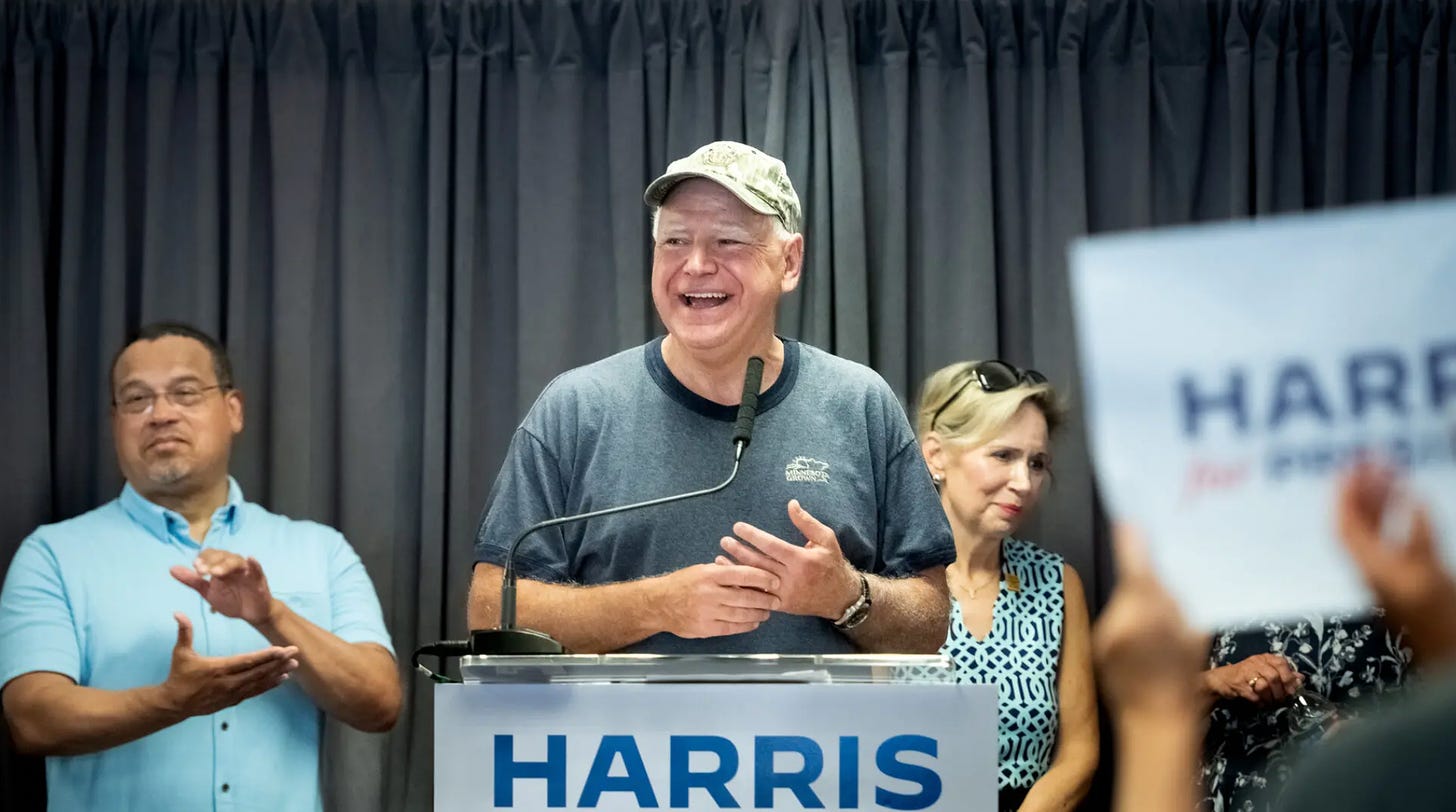
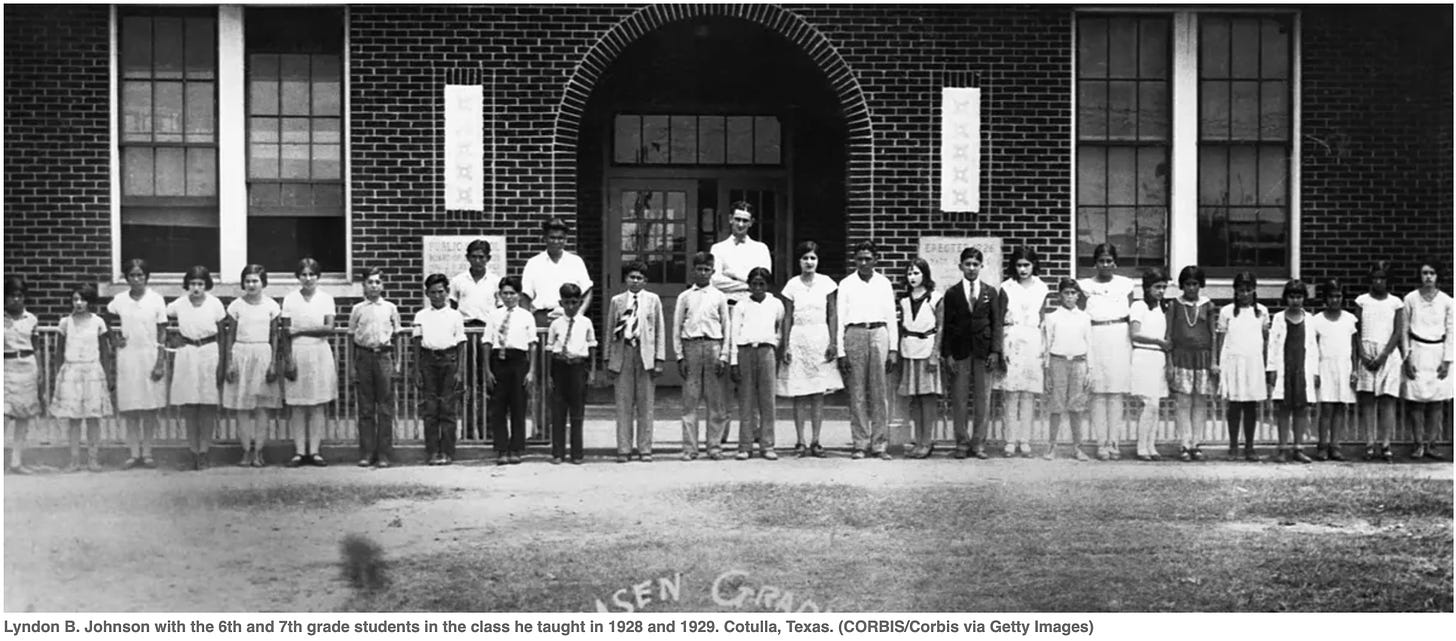
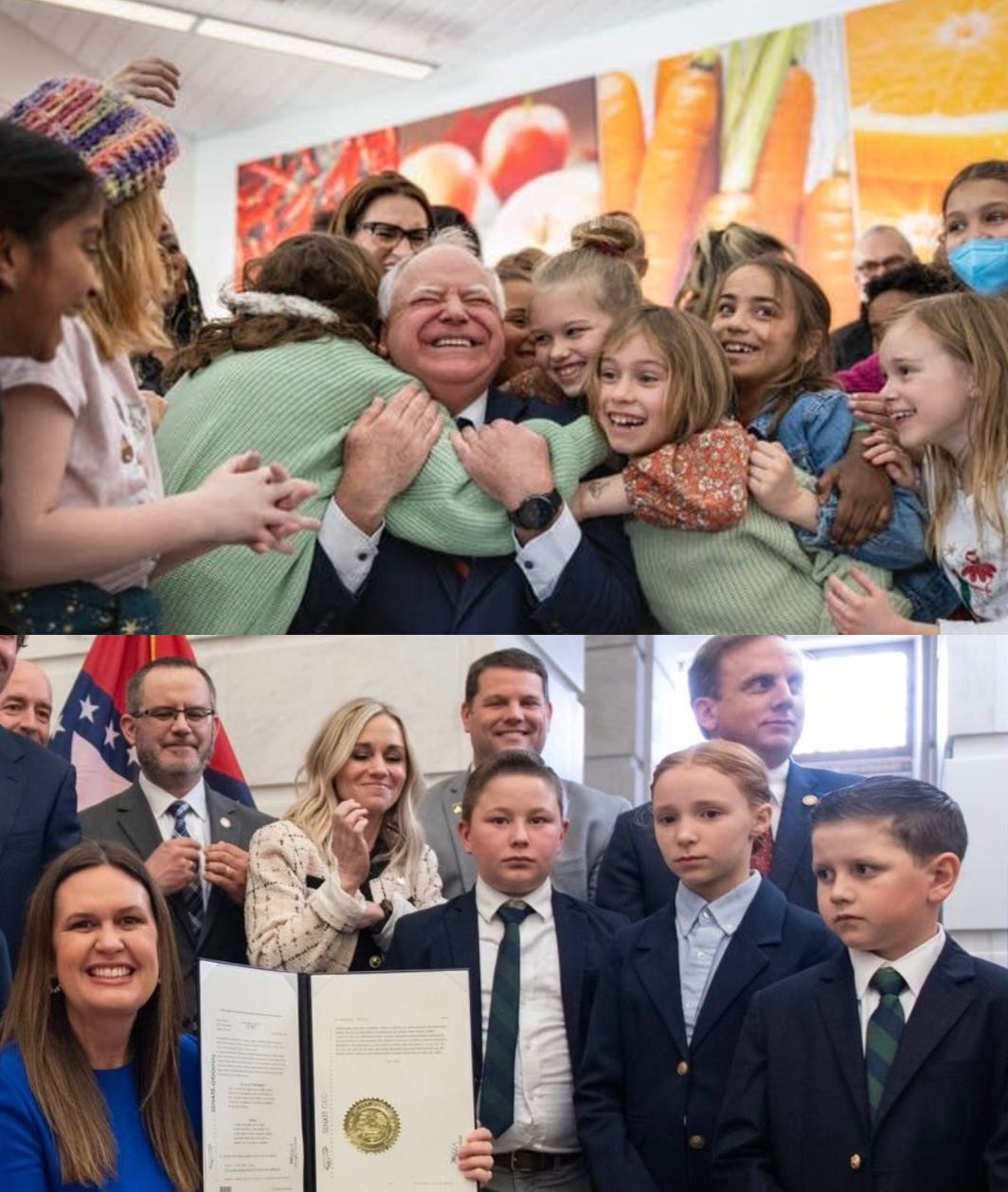
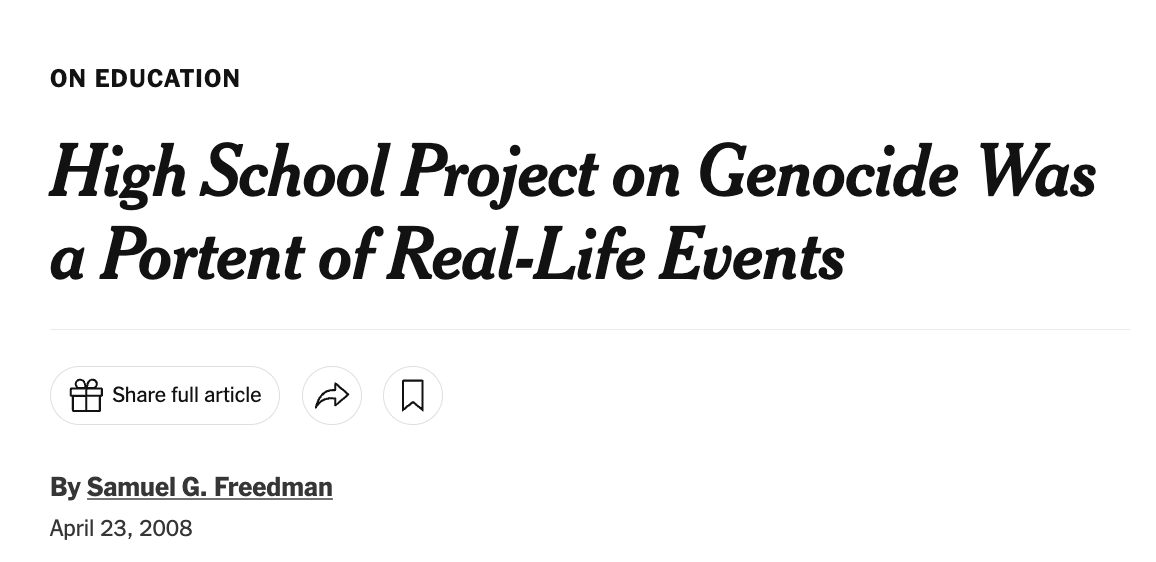
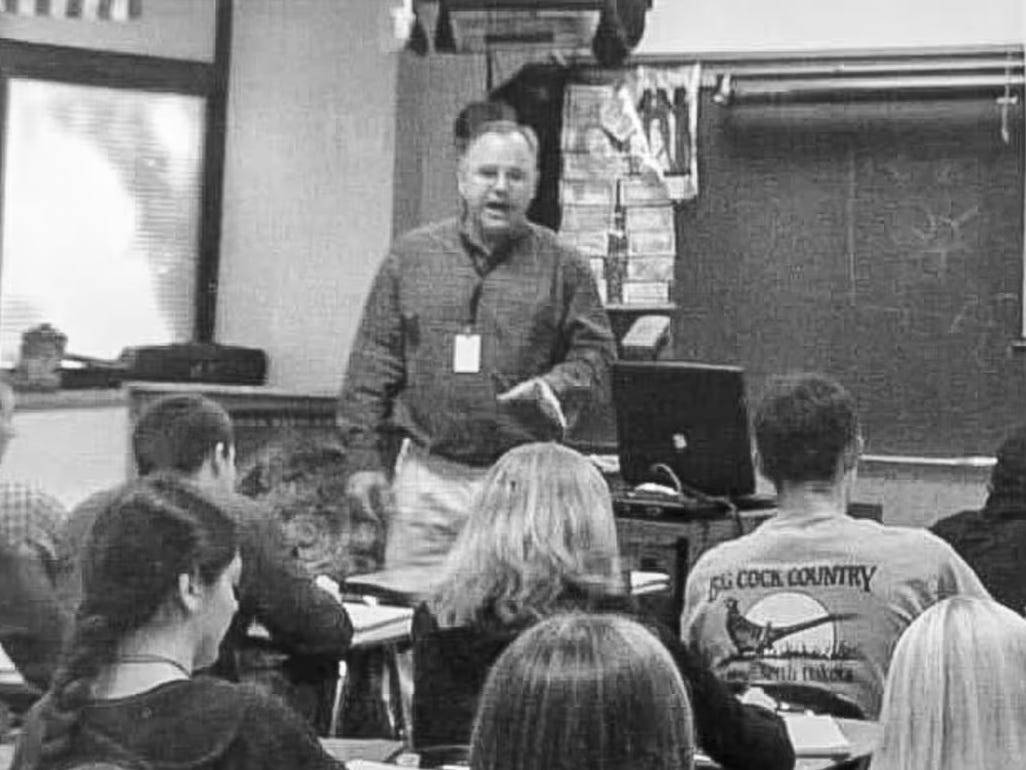
"Tim Walz is a teacher. A pretty good one by all accounts. And maybe we need a bit more of those skills in the White House." Absolutely. I also think that his years teaching high school not only makes him a good speaker, including a spontaneous speaker, but it also makes him very good with a "come back". I'm a retired academic and I had to learn to speak well, to be honest, and to be able to give a good come back when necessary, but doing this with high school kids is much harder. This is a learned skill and Walz seems to be very good at it. I'm also certain that his years teaching led him to sign legislation for free breakfast and lunch, and free tampons and pads for students. He knows how a lot of things actually work. Most lawyers in Congress know the law (certain areas of the law) but unless they have actual courtroom experience, they think in a theoretical, academic way, and not in a practical way that actually solves problems. My area was Federal taxation and I always said that our tax laws would be greatly improved if the lawyers in Congress actually filled out tax forms and tried to comply with the tax laws they passed.
I hadn’t realized how much teaching in junior and senior high school can open one’s mind to real life problems. Thanks, Walz — and Moynihan.